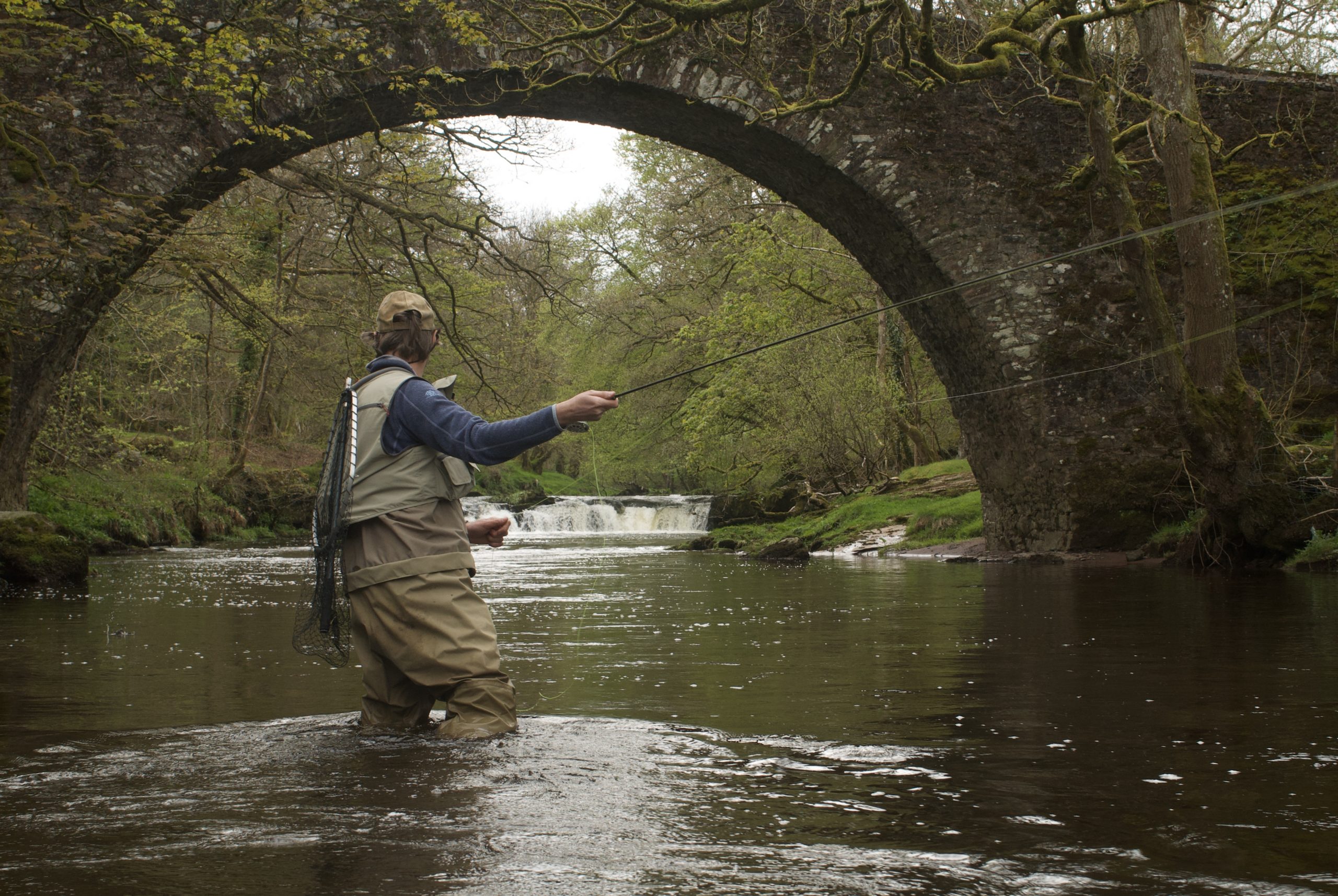
Campaigns
Angling Trust calls for well-resourced enforcement and monitoring in response to Defra’s consultation on the Environmental Land Management Scheme (ELMS)
For over forty years, the EU Commons Agricultural Policy (CAP) has directed how land is farmed and managed in the UK. The departure from the EU and CAP gives us the opportunity to redesign agricultural policy to ensure farming practices continue to produce food for the table, but put in place practices that will protect and enhance the environment and provide ‘public goods’. These ‘goods’ are benefits that the environment can provide which help us all, such as clean water, good air quality and natural flood protection.
Defra’s consultation outlined their initial overview of the new Environmental Land Management (ELM) scheme, and how this might work. At its core is the division of land management into three Tiers with each tier offering money to landowners that adopt management practices that will improve the environment. Tier one covers land management practices that can be undertaken at a local level by an individual land manager, farmer, or forester. Tier 2 is at larger, group of farms together scale, offering the opportunity for land managers to work collectively to meet a specific environmental outcome in a local area. Finally, Tier 3 will cover activities that are undertaken at a landscape scale.
With a mere 14% of English rivers in ‘good’ ecological status in 2016, and agricultural pressures a main factor preventing improvements, an overhaul of land management is long overdue. Freshwater environments are impacted by any activity that occurs within their catchment. Thus, the only way to reverse degradation of our rivers and lakes is through improving land management, reducing sediment and nutrient run off, and improving water retention within upland areas. The Angling Trust are generally supportive of the ELMs proposal and welcome the greater recognition that has been given to include the environment in land management.
ELM scheme presents a substantial opportunity for a step-change in our management of the landscape, to reverse environmental degradation and work towards improving the quality and quantity of our waters. However, to ensure that ELMS does not represent a replacement of past payment schemes such as Basic Payments or Entry Level Stewardship, clearer, stronger objectives need to be laid out and backed up by adequate financial incentives and support, and enforcement and monitoring to ensure environmental outcomes are met. Only through this approach can ELMS ensure that both farming and nature survive and thrive together. In our response to the consultation we highlighted some key areas that the government will need to incorporate for real transformative change to occur. For ELMS to be a success it must:
- Only provide money to land managers that adopt farming practices that provide environmental improvements above what they should be providing already under best practice. For example, cutting the hedgerow should be a standard best practice activity, whilst reduced and more targeted fertiliser application presents an activity that has gone beyond best practice.
- Include well-resourced enforcement to allow site visits to ensure landowners are complying with the scheme. This represents a major failure of past schemes, where a lack of enforcement means landowners have been paid to provide public benefits but have not delivered these benefits.
- Effective monitoring needs to be a central element of ELMs to determine the success of the scheme and progress towards meeting targets.
- The scheme is adequately resourced to provide trained support and specialist advice to land managers to support their transition onto the new scheme and assist in the delivery of the environmental outcomes.
You might also like

SENSAS FUTURE NETWORKS DO THE DOUBLE DOUBLE IN YOUTH…

NATIONAL GLORY FOR RAMMY AT LINDHOLME

Three British record fish claims ratified

Making plans for kids and holiday activities? Fun, safe…

Get Fishing Fund – Funded Project: Fishing Opens New…

Climate change fuelling dangerous river pollution across England and…

NEW BLOG: The best thing about fishing – from…

Ethan gets his Gold Get Fishing Award – young…

Summer of Fishing 2025 is here – get into…

Get Fishing Awards were at Bristol Festival of Nature…

VIDEO: It’s not all about the fishing… Check out…

ENGLAND TAKE GOLD IN HOME NATIONS BOAT CHAMPS

SENSAS FUTURE NETWORKS DO THE DOUBLE DOUBLE IN YOUTH…

NATIONAL GLORY FOR RAMMY AT LINDHOLME

Three British record fish claims ratified

Making plans for kids and holiday activities? Fun, safe…

Get Fishing Fund – Funded Project: Fishing Opens New…

Climate change fuelling dangerous river pollution across England and…

NEW BLOG: The best thing about fishing – from…

Ethan gets his Gold Get Fishing Award – young…

Summer of Fishing 2025 is here – get into…

Get Fishing Awards were at Bristol Festival of Nature…

VIDEO: It’s not all about the fishing… Check out…

ENGLAND TAKE GOLD IN HOME NATIONS BOAT CHAMPS

SENSAS FUTURE NETWORKS DO THE DOUBLE DOUBLE IN YOUTH…

NATIONAL GLORY FOR RAMMY AT LINDHOLME

Three British record fish claims ratified

Making plans for kids and holiday activities? Fun, safe…

Get Fishing Fund – Funded Project: Fishing Opens New…

Climate change fuelling dangerous river pollution across England and…

NEW BLOG: The best thing about fishing – from…

Ethan gets his Gold Get Fishing Award – young…

Summer of Fishing 2025 is here – get into…

Get Fishing Awards were at Bristol Festival of Nature…

VIDEO: It’s not all about the fishing… Check out…









